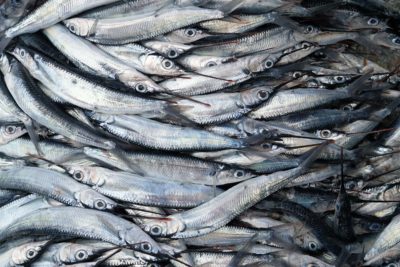Nereus Program Research Associate Marjo Vierros (UBC) is lead author with a research team that includes Guillermo Ortuño Crespo (Duke University), Daniel Dunn (University of Queensland), Director Yoshi Ota (University of Washington), and Deputy Director Andrés Cisneros-Montemayor (UBC) on a new study published in Marine Policy. In their paper, the authors discuss the importance of including traditionally under represented Indigenous Peoples and local communities (IPLCs) in United Nations (UN) governance treaty negotiations concerning areas beyond national jurisdiction (ABNJ). They argue that IPLCs need to be included in further UN governance negotiations three reasons: these communities are already custodians of many commercially and culturally important migratory species and habitats, Indigenous Peoples’ rights to traditional resources are recognized in the UN Declarations on the Right of Indigenous Peoples (UNDRIP), and IPLC knowledge and practices can be vitally important in informing the proper conservation and the sustainable use of marine species and habitats.
They focus on four case studies that show how IPLCs are connected to the global ocean commons, and how far away decisions can impact their cultures, lives and livelihoods. They look at leatherback and other sea turtles and their importance to communities and islands throughout the Pacific Ocean, Pacific salmon and their importance to First Nations in British Columbia, black-footed and laysan albatross for Native Hawaiians, and the northern fur seal for communities along the North American Pacific coast. In conclusion, the authors call for a framework that includes all of those who depend on the ocean and urge delegations to recognize the significant potential for IPLCs to contribute to the governance of the global oceans by fully and meaningfully participating in a future UN treaty on marine biodiversity beyond national jurisdiction (BBNJ). You can read the full abstract and access the paper below.
Abstract
The United Nations are currently negotiating a new international legally-binding instrument to govern the global ocean commons, a vast area beyond national jurisdiction (ABNJ) owned by everyone but not cared for by any single entity. Indigenous Peoples and local communities (IPLCs) have been underrepresented in the debate about governance of ABNJ despite their internationally recognized rights and their role as custodians of many globally-significant migratory species that travel between coasts and high seas. Here we use examples of active transboundary connectivity by migratory species as case studies to highlight the relevance of IPLCs on islands, coasts and beyond to the governance of the global ocean commons, and make a case for their essential and beneficial inclusion in it. Many migratory species are culturally and economically important to IPLCs, who are frequently the first to suffer if these species are overexploited or decline due to inadequate management in ABNJ. Four case studies (Pacific salmon, Marine Turtles, Black-footed and Laysan Albatrosses, Northern fur seal) illustrate knowledge, innovations and practices of IPLCs that have global importance in informing strategies for conservation, sustainable and equitable use of marine species in general. IPLCs can contribute to enriching the diversity of approaches and solutions, and by elaborating on principles directly relevant for governance of ABNJ within the UN process and beyond.
The above summary was adapted entirely from the reference below
Vierros, M.K, Harrison, A.L., Sloat, M.R., Ortuño Crespo, G., Moore, J.W., Dunn, D.C., Ota, Y., Cisneros-Montemayor, A., Shillinger, G.L., Watson, T.K., & Govan, H. (2020). Considering Indigenous Peoples and local communities in governance of the global ocean commons. Marine Policy, 119: 104039. link.







